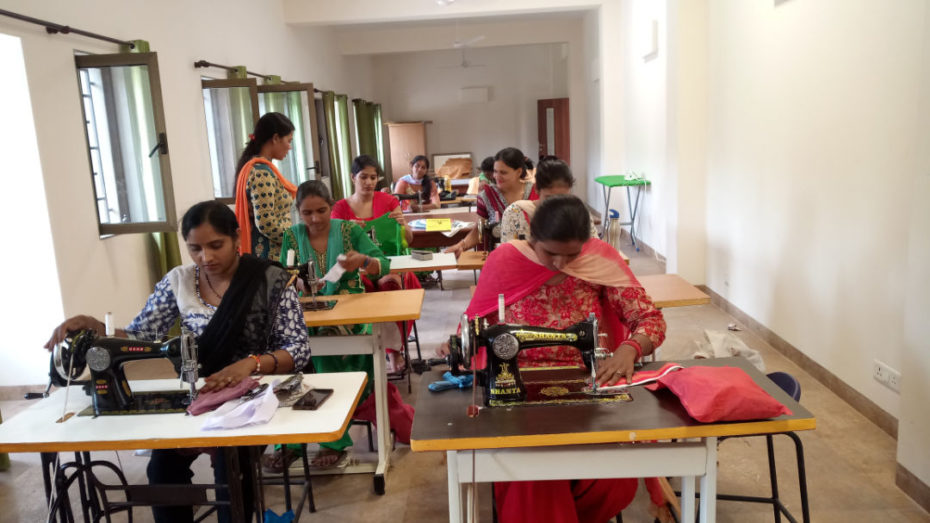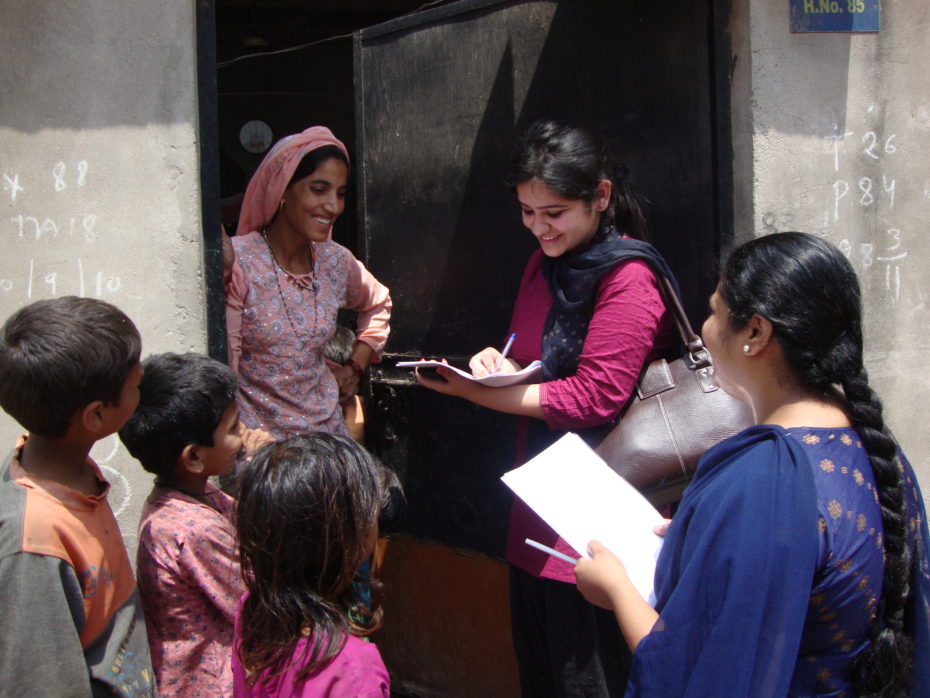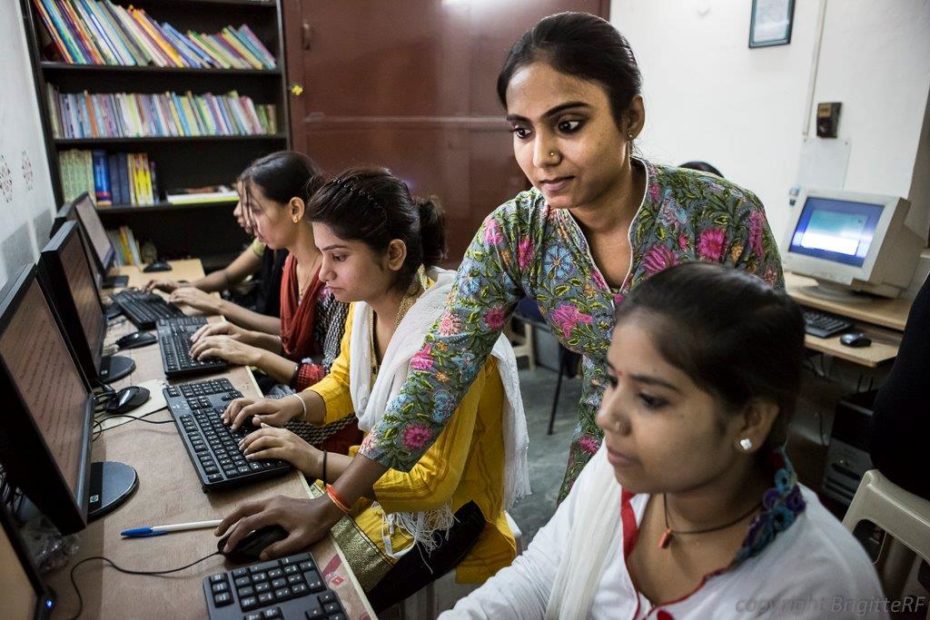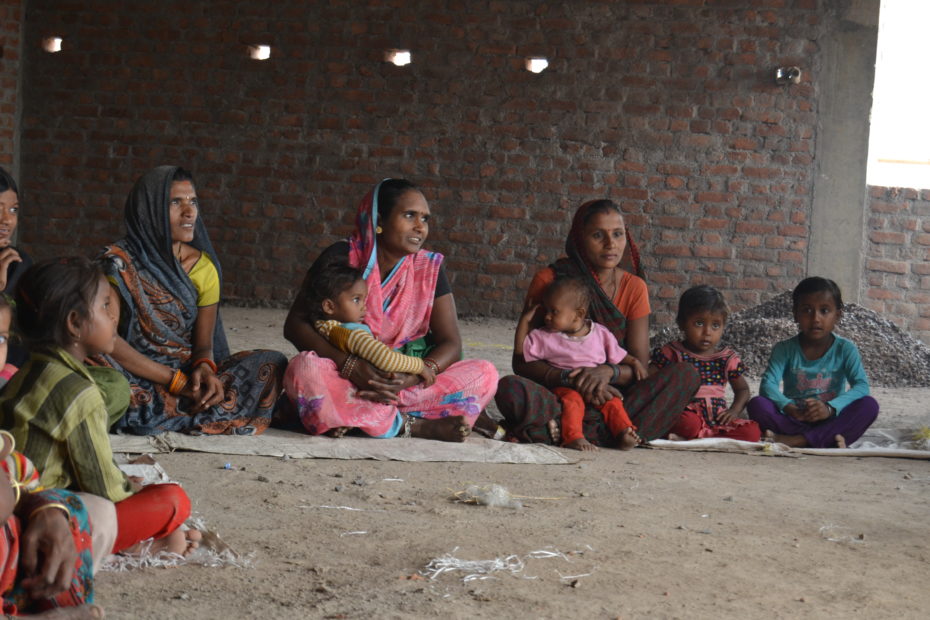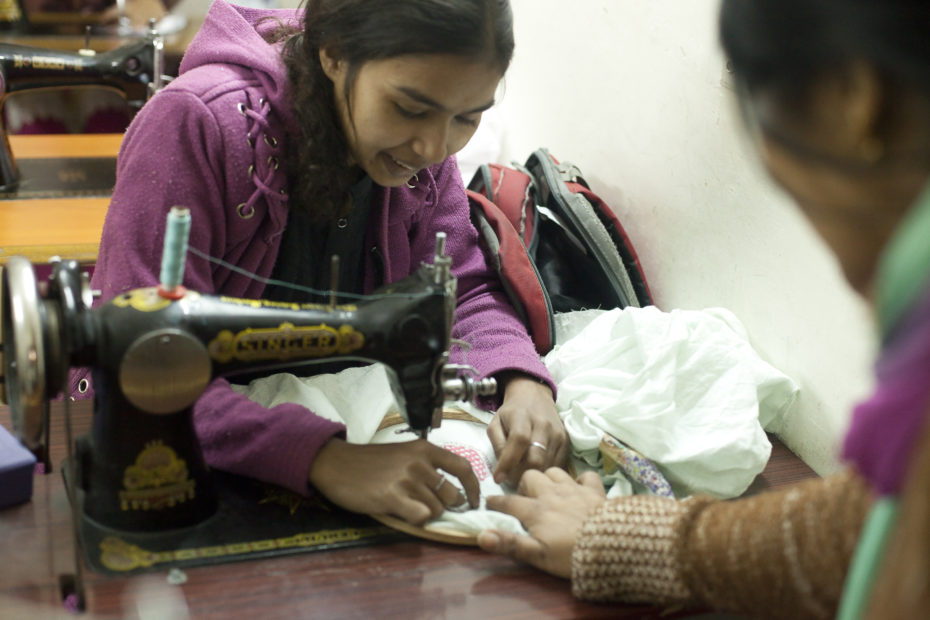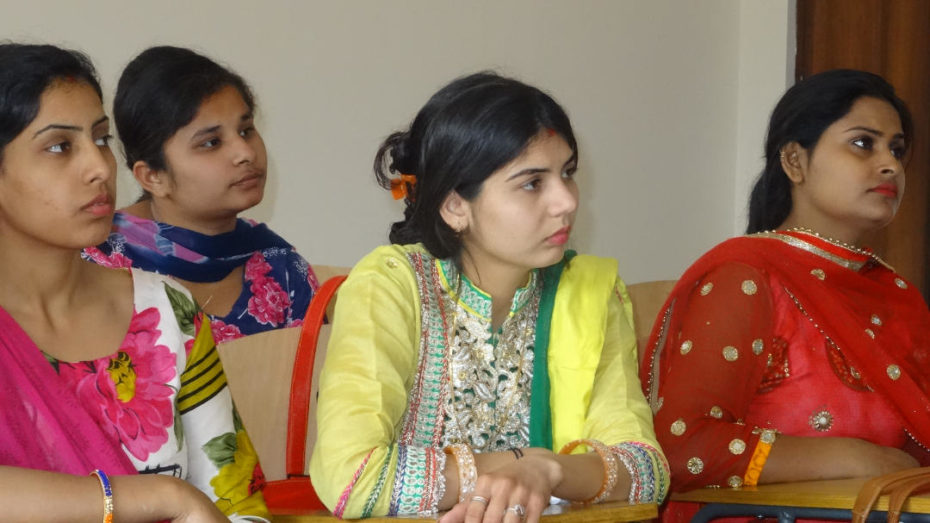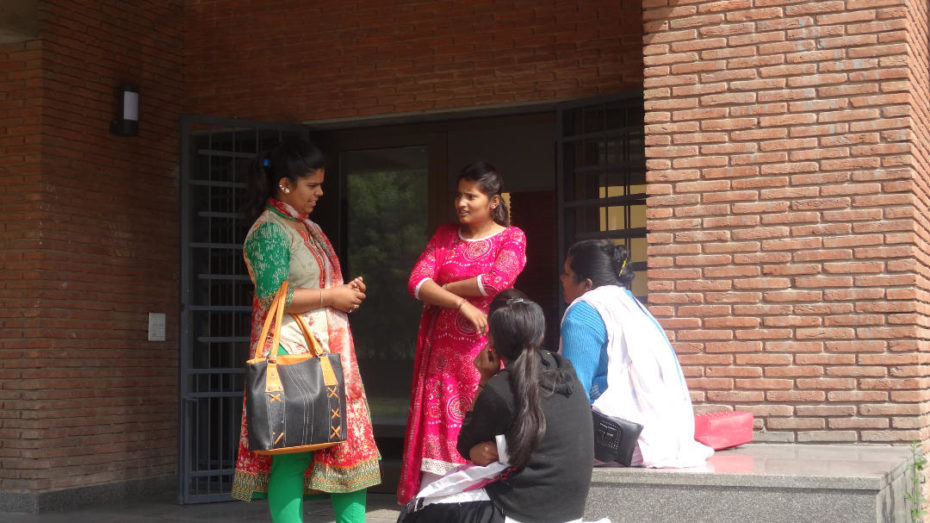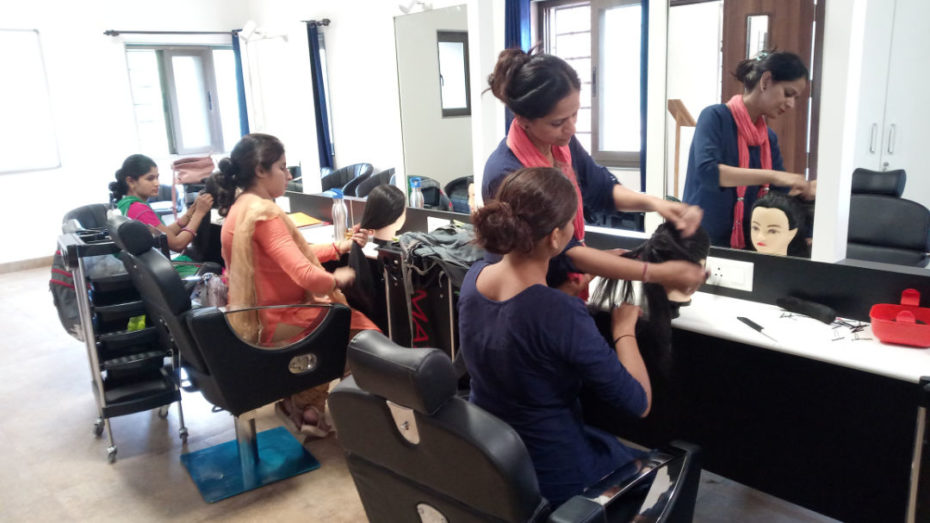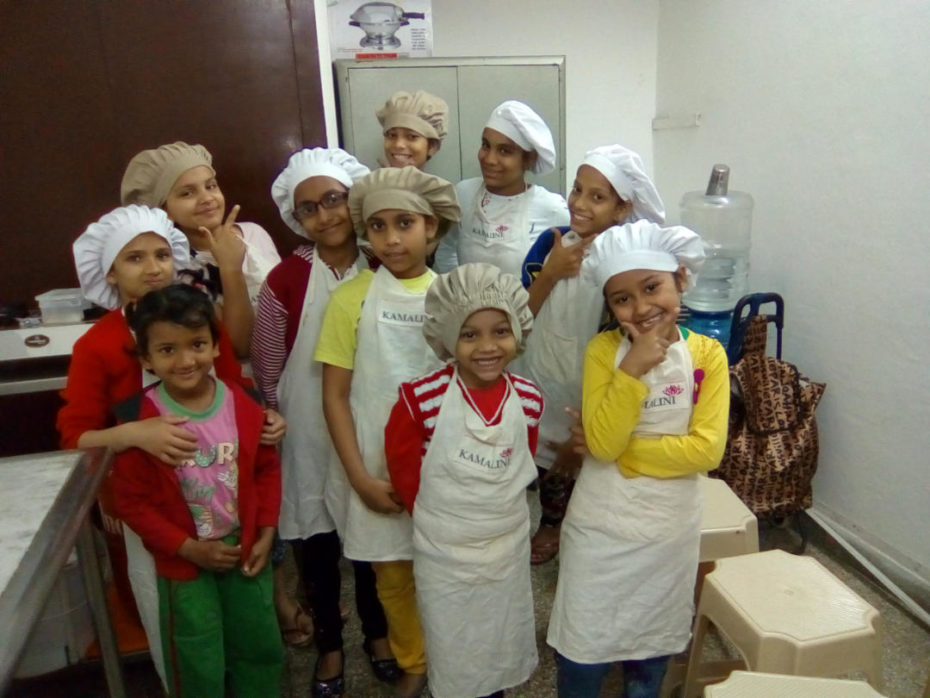Within the hustle and bustle of India’s massive capital city of Delhi, there is an oasis for women who are looking for a chance to flourish and grow out of their poverty: Kamalini.
The Kamalini Vocational Training Centre operates in two locations: one in Delhi and the other in Haryana, 35 kilometers from Delhi on the Sohna-Gurgaon Road.
The focus of this center is to train women who have dropped out of school in skills which could help them find employment. Kamalini is a secular organization open to women of all faiths.
In India, depending on the region and social class, wide disparities exist between girls and boys. If a family has limited resources, they will often spend more of their money on the education of their boys. There are also disparities between those who live in rural versus urban areas. In rural areas, families are more likely to keep their daughters helping at home or in the farm, and to send the boys to school. Schooling and literacy is far less in rural areas than in metro areas. Nationally, women lag men in literacy by nearly 17%, and represent only about 25% of the employed workforce.
Kamalini was founded in 2007 in a few rented rooms in Delhi by some of the women governors of the registered society Educational & Development Initiatives (EDI). Just this past year, the organization opened up its second location on a 5-acre lot in Haryana due to a desire for more space. The Haryana location is wholly owned and operated by EDI.
The centers offer classes to women in sewing, basic computing, cooking and house-keeping, the English language and basic literacy. The Haryana location is also offering classes on beautician skills as beauty (make-up and hair care) is a major industry in India.
“We are trying to bridge the gap between girls who drop out of school and good employment,” said Barbara Spencer, project manager for Kamalini. “We try to help these girls get the skills and education to get better jobs. We also want to help them with self-confidence by giving them personal attention.”
The education at Kamalini is holistic. If a woman signs up to learn about sewing, she will also learn about computers, personal communication and how to do a job interview. Several graduates of Kamalini have opened their own home-based businesses sewing fashionable clothes in their own homes. One graduate bought a scooter and went to the neighboring village to offer beautician services. Within her own village, everyone had wanted her to do the work for free, “as they are practically family.” By going to other villages, she was able to start earning 20,000 rupees a month (equivalent to $400 per month).
“We are beginning to make an impact,” said Spencer. “We are pro-family and we try to work within the structures of their own families. What we find is that when the girls have more skills, the whole family benefits. One lady began to work from home and she was able to buy a computer for her son. As she began to earn money, she raised the standard of living within her own home.”
During the last ten years, Kamalini has trained over 3000 women and girls. Some come for 3-month classes, others for 6-month classes. Students range in age from 17 to 35, and the average age is about 22. Many are married with children. On Saturdays, there are English and cooking classes for children.
The Haryana campus, which opened in 2017, has larger and better equipped classrooms so it can serve more students at a time. There is a child-care area so that women who come with small children can take classes, while their children are taken care of.
Convincing people to attend Kamalini classes takes time and effort. Staff members often visit families in their own homes, building friendships first. Some have advertised by traveling in rickshaws with loudspeakers and handing out flyers. Others spend time speaking with community leaders in villages.
“Last summer, we gave a class in basic computer skills. We were able to convince families in one village to come. But we had to arrange transportation for all the students from that village to come to the campus,” said Spencer.
Kamalini charges a small fee for the classes because organizers soon realized that if the classes were free, no one would see the value in it.
The Haryana campus includes a hostel area for young women to sleep in if they are coming from far away. Kamalini offers a work/study program for girls who need to earn money and send it home.
Another project for Haryana is to complete the in-house training conference area to host seminars and retreats. When it is operational, Kamalini students can earn money by catering for conference participants.
“We teach basic virtues to the women: sticking to your word, being loyal. We want them to learn good work habits and pass them on. We want to help our students to form personal goals and work to achieve them,” said Spencer.
The name “Kamalini” means “abundance of lotus flowers”. Since the lotus flower is India’s national flower, the name has great significance for Indian women. Kamalini’s founders felt that the lotus represented the women who come into their center, often growing in adverse situations.
Kamalini can be that place where these women truly flourish and grow.
News about the surge in cases, loss of jobs and lack of food for the poor drove us to plan a series of activities to help those most affected.
The Kamalini team distributed food rations and masks to the needy. At the request of the local government, Kamalini organised door-to-door sanitisation of homes, temperature screening, and explained safety precautions in villages near the campus.

